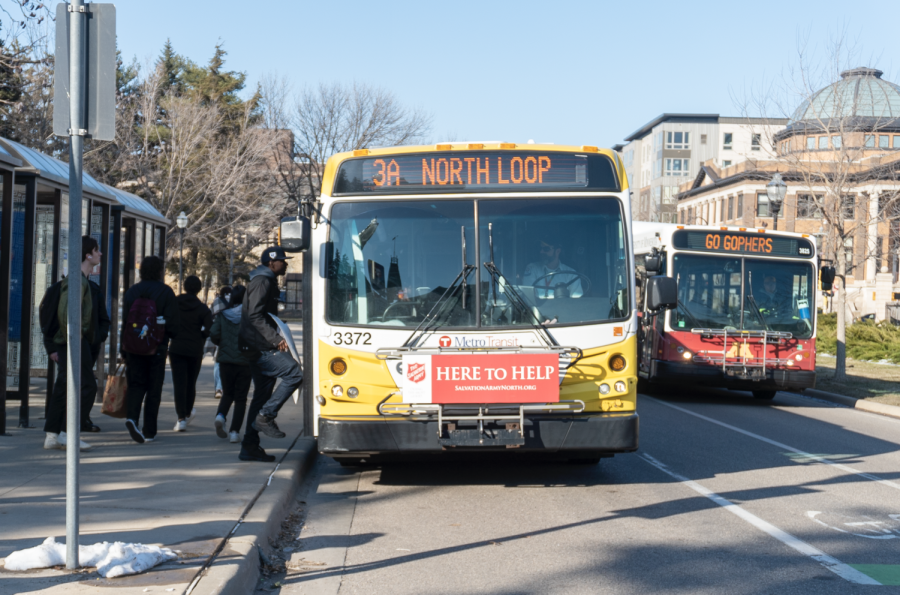Between singing along with Betty Who and taking a spin on a Ferris wheel, students at last weekend’s Spring Jam had the option to sample four different food truck vendors.
But only one food truck had no trash to toss in the dumpster when the event was over.
Gastrotruck, one of the first food trucks to sell at Spring Jam, runs its catering company as a zero-waste operation, and it’s the only food truck in the state to do so.
Catherine Eckert, co-owner of Gastrotruck, said she was excited to have the opportunity to help cut down on waste at a University-sponsored event.
“We don’t want to be throwing big bags of trash away at the end of an event,” Eckert said. “That’s just not what we think is the right thing to do.”
Students had expressed an interest in having food trucks at Spring Jam through event feedback, said Ashley Kaser, student activities advisor for University Student
Unions and Activities, which organized the annual event. The organizing committee searched for local trucks with high ratings online and found Gastrotruck, the 2014 Minnesota Food Truck Association’s Food Truck of the Year.
“We didn’t know they were zero-waste, but we were so excited to hear that they were,” Kaser said. “That wasn’t part of our process this year, but it was a fun added bonus for us.”
Zero-waste strategies “minimize resource consumption and eliminate waste whenever possible,” according to the United States Environmental Protection Agency.
Gastrotruck recycles or composts about 85 percent of its waste, Eckert said.
The 5-year-old business implements several strategies to reduce waste, she said.
Greens and herbs used in the truck’s food are grown in Eckert’s home garden, she said.
Eckert said she purchases ingredients that can’t be grown in her garden from local farmers only.
When buying meat, she buys only organic, whole products, like an entire chicken or duck, Eckert said. Meat that can’t be used for dishes is used to make broth, fat is used to cook bakery items and bones are dried and crushed into a garden supplement.
“Our worst case is to go compost it, but we try to use everything available to us in those processes,” she said.
Any containers or utensils on the bus are recyclable or compostable as well, Eckert said.
Sustainable practices can be pricey, so most full meals the truck serves are between $10 and $15, she said.
But the business can also get a lot for its money because it gets the highest possible yield out of its ingredients, Eckert said.
Alec Duncan, owner of Potter’s Pasties food truck, said not all food trucks can afford to compost or buy organic ingredients, especially if they’re newer.
“At the end of the day, I can’t ask people to pay 14 or 15 bucks for a pasty because they won’t do it,” he said of the truck’s savory pastries, which usually cost about $7. “They’ll go somewhere else.”
Still, Duncan said he does what he can to make the truck environmentally friendly.
Duncan uses compostable trays and recycles, he said, but he doesn’t buy organic ingredients because they’re too expensive and they don’t keep long enough.
The real challenge with reducing waste, Duncan and Eckert agreed, is when the food is passed on to the customer. Many customers will throw recyclable and compostable materials away in the trash even if there are recycling and compost bins at an event, they said.
“Once the food is taken away from the truck, it’s a social responsibility,” Eckert said.
Gastrotruck has visited some zero-waste events, she said, where an on-site educator instructs customers how to dispose of their waste.
Zero-waste events can cut the trash produced by a typical event in half, she said.
SUA student activities adviser Kaser said someone contacted SUA once this year about making campus events zero-waste, and the committee is looking into it for the future.
Eckert said she’s seen growing support for zero-waste practices, and she hopes more companies and event organizers adopt them in the
future.
“There’s a community out there that really believes in what we’re doing,” she said. “I wish everyone would care about composting and recycling, but I’m doing what I can with my business, and that is what it is.”
















